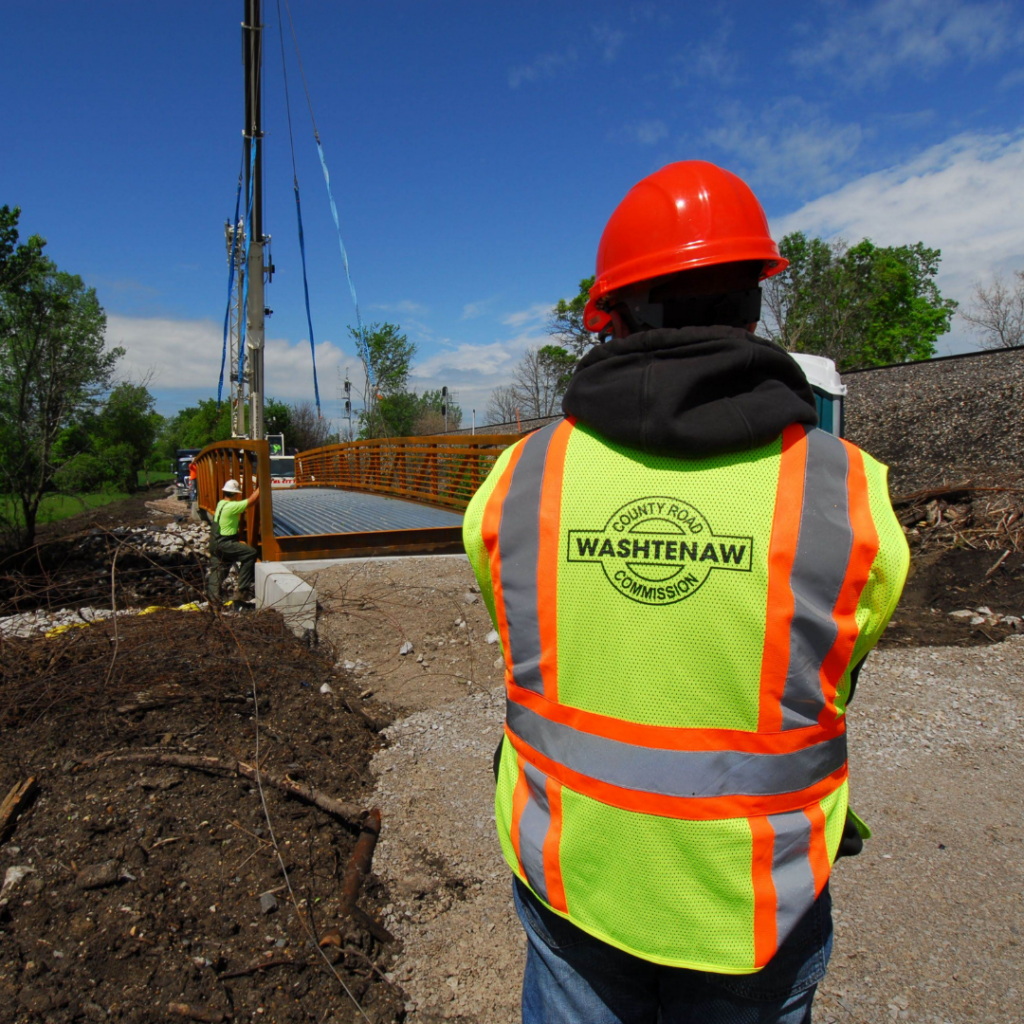Washtenaw County Road Commission – a vital B2B Trail Partner

It is well known among HWPI supporters and B2B Trail users that the Washtenaw County Parks and Recreation Commission (WCPARC) and its staff led the charge to build a county-wide trail years ago, and over the past four years WCPARC and HWPI has fostered a successful public-private partnership to rapidly accelerate trail construction. It is less known that there is another important partner in the county that continues to play a pivotal role in the project.
The process of building non-motorized trails has many parallels to the process of building roads – sharing similarities in design, permitting, construction methods, and contractors. Beyond construction, there are significant benefits to overlapping motorized and non-motorized routes that share a public easement. For these reasons, and others, partnership with a local road agency can be a powerful tool when building trails.

The process of building non-motorized trails has many parallels to the process of building roads – sharing similarities in design, permitting, construction methods, and contractors. Beyond construction, there are significant benefits to overlapping motorized and non-motorized routes that share a public easement. For these reasons, and others, partnership with a local road agency can be a powerful tool when building trails.
For us living in Washtenaw County, that agency is the Washtenaw County Road Commission (WCRC), headquartered on Zeeb Road. The WCRC and its staff have been incredibly supportive of HWPI and the B2B Trail and have become an invaluable partner in helping us sustain our rapid construction pace over the past four years. Their support is essential to several functional aspects of pathway development, including administering the construction and funding for projects that involve the Michigan Department of Transportation (MDOT), resolving public and private easements along county roads, overseeing many permitting processes, and supporting specific bid and construction contract issues.
Our team has come to realize the tremendous asset we have in WCRC in our county, as the pace and quality of B2B Trail construction would simply not be possible without their active involvement. In speaking to regional trails partners, it is apparent that many areas of the state lack such support from local road agencies, and in some cases face opposition to non-motorized trail development.
From everyone who works on, uses, and supports the B2B Trail system, we’d like to extend a heartfelt “THANK YOU” to the Road Commission and their staff for all that they do to support the B2B Trail.

